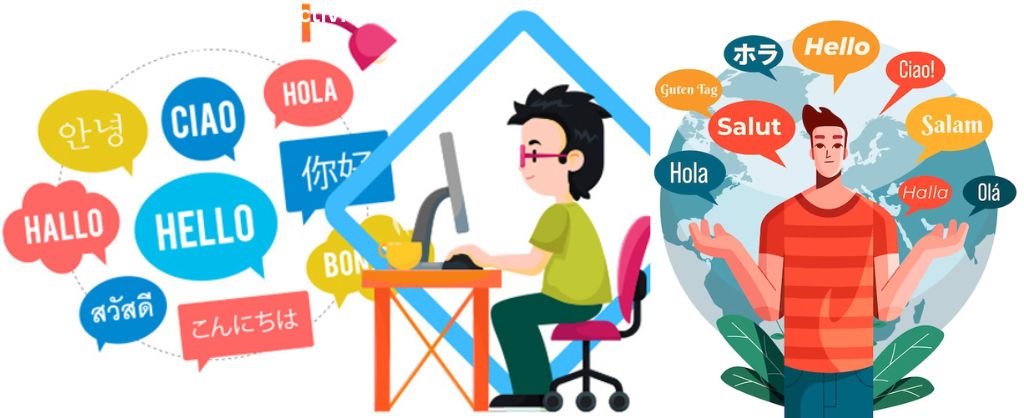Aimbridge Connection
Connecting You to the Latest in Hospitality and Travel Insights.
Lingua Frenzy: Why Juggling Languages is the New Superpower
Unlock the secret superpower of juggling languages! Discover why multilingualism is your key to success in today’s global world.
Unlocking the Benefits: How Bilingualism Boosts Brain Power
In today's increasingly interconnected world, bilingualism is more than just a valuable communication skill; it is a cognitive powerhouse that enhances brain functionality. Studies have shown that learning and using multiple languages can improve critical thinking and problem-solving abilities as the brain becomes accustomed to switching between different linguistic frameworks. This process, known as executive control, engages various brain regions and can lead to improved memory retention and attention span. The mental flexibility developed through bilingualism allows individuals to tackle complex tasks with greater ease, making it an essential asset in both academic and professional settings.
Moreover, the benefits of bilingualism extend beyond immediate cognitive advancements. Research indicates that individuals who are bilingual often experience delayed onset of neurodegenerative diseases, such as Alzheimer's or dementia, as they age. By continuously exercising their brains through language use, bilingual individuals strengthen their neural pathways, which can contribute to improved brain health over time. Embracing bilingualism is not just about enhancing everyday communication; it is a strategic investment in lifelong cognitive resilience and a healthier, sharper mind.

Top Tips for Mastering Multiple Languages: Your Ultimate Guide
Mastering multiple languages can be a rewarding yet challenging endeavor. Here are some top tips to help you on your journey:
- Set Clear Goals: Define what fluency means to you for each language. Are you aiming for conversational skills, reading proficiency, or advanced writing? This clarity will guide your learning.
- Practice Regularly: Consistency is key. Make language practice a daily habit, even if it’s just 10-15 minutes a day. Integrate it into your routine by using language apps, watching movies, or reading books in the target language.
An effective strategy for learning multiple languages is to immerse yourself in the cultures associated with them. This can be through traveling, participating in language exchange meetups, or consuming media in those languages.
Remember, each language offers a unique perspective on the world, so embrace the differences and similarities!
Additionally, don’t hesitate to make mistakes. They are an essential part of the learning process. Celebrate small victories, and keep your language learning experience enjoyable.
Is Juggling Languages the Key to Unlocking Cultural Connections?
In today’s interconnected world, juggling languages has emerged as a significant skill that goes beyond mere communication; it acts as a bridge to understanding diverse cultures. When individuals learn and speak multiple languages, they not only acquire the ability to converse with others but also gain insights into the customs, traditions, and values that shape different communities. For example, speaking Spanish can open the doors to the rich cultural tapestry of Latin America, while proficiency in Mandarin can lead to a deeper appreciation of Chinese philosophies and social dynamics. By exploring these languages, individuals unlock a treasure trove of cultural connections that enhance their global perspective.
Moreover, juggling languages can foster empathy and creativity, qualities that are essential in a multicultural society. Engaging with another language often involves navigating its nuances—such as idioms, humor, and social norms—which helps individuals develop a greater awareness of their own cultural biases. This enhanced cultural competence can lead to improved relationships and collaborative endeavors across borders. A multilingual environment encourages the exchange of ideas and experiences, thus enriching our understanding of the world. Ultimately, the ability to juggle languages is not merely about fluency; it’s about cultivating a sense of connection and fostering a more inclusive global community.